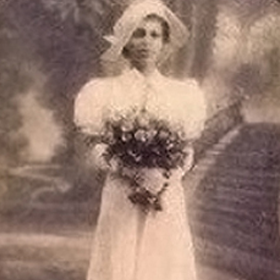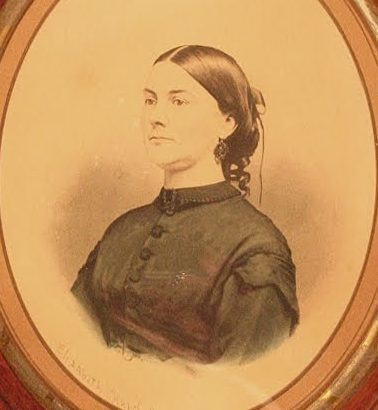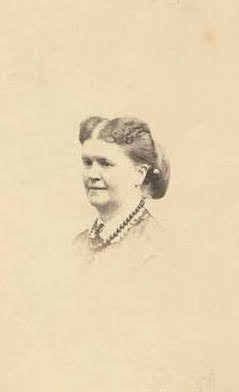Veterinarian. Veterinary anthropologist. Veterinary school professor. Westport’s Elizabeth Atwood Lawrence (1929-2003) overcame misogyny in veterinary school to become perhaps the only veterinary anthropologist in the U.S. She dedicated her pioneering veterinary career to private practice, research on human-animal relations, and veterinary school curriculum that became a national model.
Veterinarian. Veterinary anthropologist. Veterinary school professor. Westport’s Elizabeth Atwood Lawrence (1929-2003) was inspired by a lifelong love of animals as she dedicated her pioneering veterinary career to private practice, research on human-animal relations, and veterinary school curriculum that became a national model.
Born in Boston on October 1, 1929, her father was Dr. Warren G. Atwood, a prominent Fall River surgeon, and her mother was Leila M. (Redavat) Atwood, a homemaker. Elizabeth was raised in Fall River and summered in Westport for many years. She graduated from Lincoln School in Providence, RI in 1947 and from Mount Holyoke College in South Hadley, MA with a degree in English in 1951. Despite her father’s preference that she attend medical school, she believed that veterinary medicine was as valuable as human medicine and chose to attend the University of Pennsylvania School of Veterinary Medicine (Penn Vet), from where she received a Doctorate of Veterinary Medicine (VMD) in 1956.
As one of only two women in her class at Penn Vet, Elizabeth was at least a quarter of a century ahead of any substantial increase of women into veterinary education. In a 1997 article in Anthrozoos, a scholarly journal of human-animal interaction, Elizabeth confirmed the lack of acknowledgement from males for her dedication, “If one factor can be singled out as the most tragic and unendurable element in my student experience, it is that never, for one moment, was that overwhelming dedication recognized or appreciated by those in power for the potential it held.” In that same article, she specified, “Men in every position at the school made it clear that women did not belong, that we should be at home raising families and that we were unsuited to handling and treating animals.” Elizabeth’s experience in veterinary school confirms that most male faculty and students were not supportive of female students in the 1950s.
In 1957, Elizabeth married the Rev. Dr. Robert P. Lawrence, minister of the First Congregational Church in Fall River. They had two children, Priscilla and Mark. By 1960, the couple settled in Westport, where Elizabeth ran a private veterinary practice from their barn that they had converted into an animal hospital. In their home, she organized a library of 15,000 books. A lifelong equestrian, Elizabeth rode and showed horses; a lover of dogs, she entered her Siberian Huskies into the Westminster Dog Show.
While raising a family and running her practice, Elizabeth enrolled at nearby Brown University in the Anthropology Department, where she earned two graduate degrees in cultural anthropology, a Master of Arts in 1976 followed by a Doctor of Philosophy in 1979. Her PhD thesis on human-animal relations studied rodeo culture of the American West, analyzing its internal conflicts, where the protagonists admired the wild and despised the tame, all while aiming at taming the wild. Elizabeth received the American Anthropology Association’s top prize for a PhD thesis, the James Mooney Award, for her dissertation. It was later published as a book, Rodeo: An Anthropologist Looks at the Wild and the Tame (1984). With doctorates in both veterinary medicine and anthropology, Elizabeth may well have been the only veterinary anthropologist in the United States.
Combining these two disciplines, Elizabeth continued to study how various cultures interacted with animals worldwide. She completed several books about her findings, including Hoofbeats and Society: Studies of Human-Horse Interactions (1985), His Very Silence Speaks: Comanche – The Horse Who Survived Custer’s Last Stand (1989), and Hunting the Wren: Transformation of Bird to Symbol (1997). In her writings, Elizabeth emphasized how important animals were to people and warned that humans were destroying this relationship by driving many animals into extinction. In her preface to Hunting the Wren, where she examined the British and European tradition of the wren hunt, she warned, “By elucidating the ways in which that bird is perceived, a great deal can be learned about how people symbolize animals and the ways in which their symbolic views affect the treatment of those animals … Human destructiveness toward nature has reached tragic proportions.”
In 1979, Elizabeth was offered a professorship at Tufts School of Veterinary Medicine, where she taught environmental and population health until her retirement in 2001. She developed a course on human-animal interactions that became a requirement for all first-year veterinary students and a national model. After her retirement, she continued to advise master’s candidates and was professor emeritus there.
In 1988, the American Veterinary Medical Association named Elizabeth the Outstanding Woman Veterinarian of the Year. She received the Distinguished Service Award from the American Veterinary History Society in 1993. A frequent speaker at international conferences, she received a distinguished teaching award in Monaco. Locally, the Fall River Chamber of Commerce honored Elizabeth for outstanding service to the community in 1997.
Elizabeth died of multiple myeloma on November 11, 2003.
Ann O’Leary
Information from
-
“Elizabeth Atwood Lawrence.” Gale Literature: Contemporary Authors, Gale, 2004.
-
“Elizabeth Atwood Lawrence.” Lowell Sun, 20 Nov. 2003. Legacy.com, https://www.legacy.com/obituaries/lowellsun/obituary.aspx?n=elizabeth-atwood-lawrence&pid=1620599.
-
Lawrence, Elizabeth Atwood. “A Woman Veterinary Student in the Fifties: The View from the Approaching Millenium.” Anthrozoos, vol. 10, no. 4, 1997, pp. 160-169.
-
Negri, Gloria. “Elizabeth Lawrence, 74, Scholar of Human-Animal Relations.” The Boston Globe, 18 Nov. 2003. Boston.com, http://archive.boston.com/news/globe/obituaries/articles/2003/11/18/elizabeth_lawrence_74_scholar_of_human_animal_relations/.
-
Rowan, Andrew. “Dr. Elizabeth Atwood Lawrence.” Anthrozoos, vol. 17, no. 3, 2004, pp. 270-272.
![[Elizabeth Atwood Lawrence], c.19th century, Photograph, Courtesy of Dr. Mark Atwood Lawrence Photograph of Elizabeth Atwood Lawrence a woman in a doctoral graduation robe, hood, and cap. She has red hair in a bob cut and is smiling.](https://historicwomensouthcoast.org/wp-content/uploads/2020/11/Elizabeth-Atwood-Lawrence.jpg)




